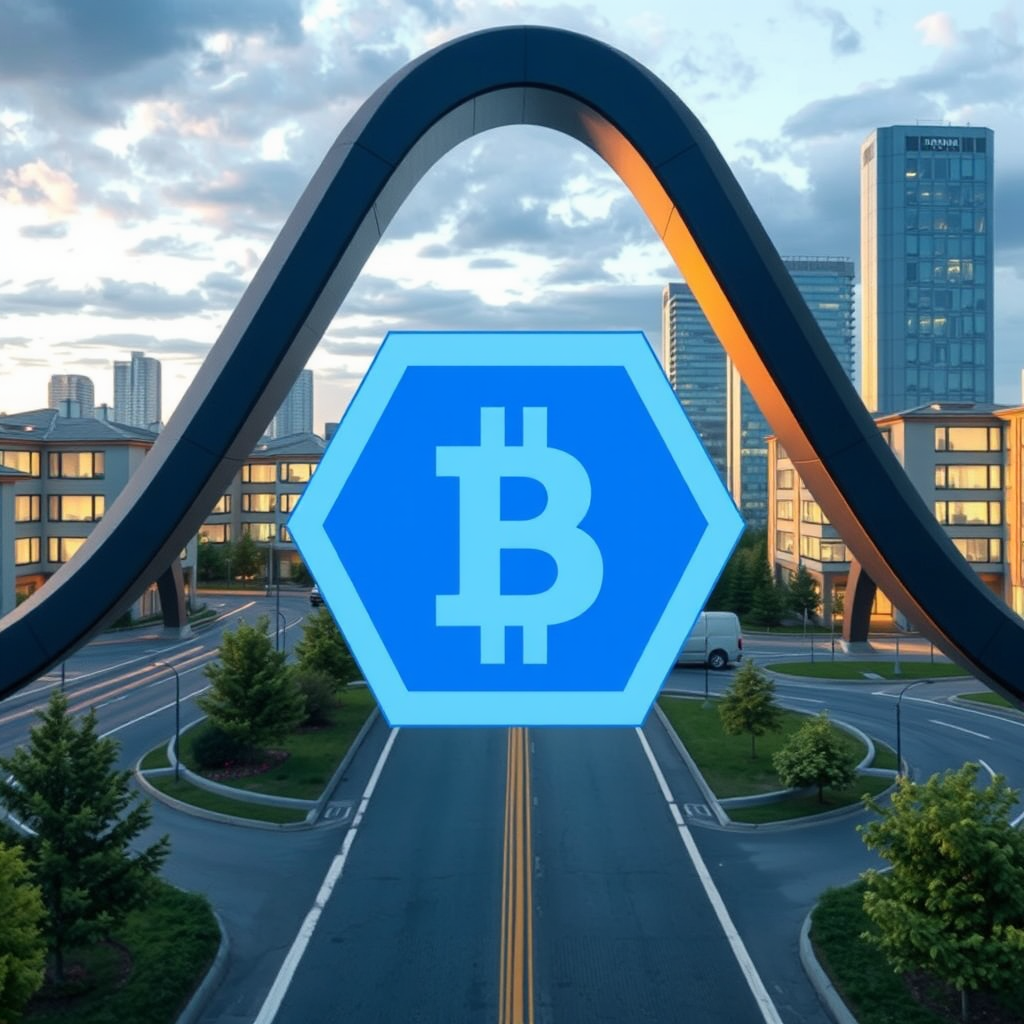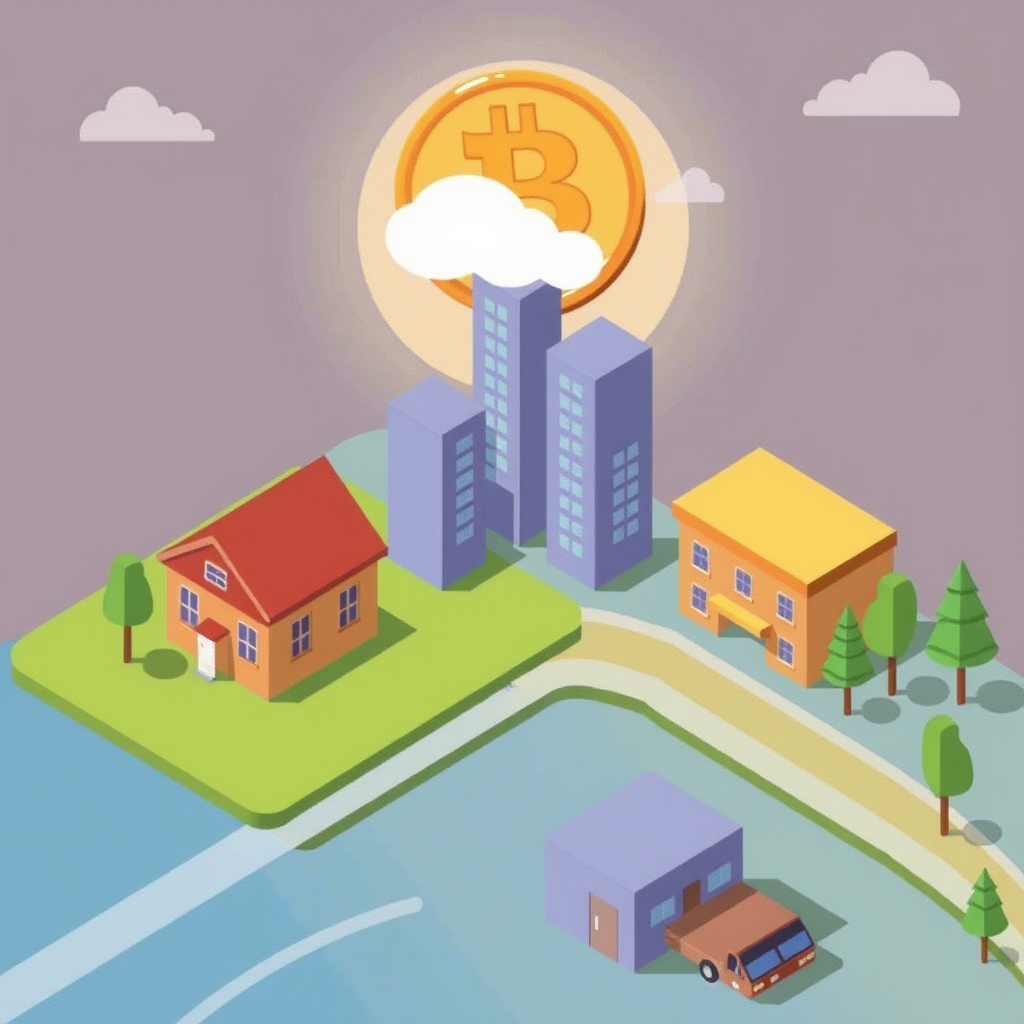Tokenization in real estate refers to the process of converting the value of real estate assets into digital tokens on a blockchain. These tokens represent a certain share of the property asset, allowing it to be divided into smaller, more manageable pieces. This transformation introduces the concept of tokenized assets within the real estate sector, which can significantly enhance the liquidity and accessibility of what is traditionally a relatively illiquid market.
By leveraging blockchain technology, real estate can benefit from increased transparency, as each transaction involving the tokenized assets is recorded on a secure and immutable ledger. This not only improves trust among participants but also reduces the potential for fraud and disputes, which are common challenges in traditional real estate transactions.
The infrastructure required for tokenization involves the digitalization and fractionalization of property values, enabling a wider range of investors to participate. This democratization of access can lead to a more diversified investment portfolio for individuals, breaking down the barriers that often restrict real estate investments to wealthy individuals or large institutional investors. Tokenization significantly transforms real estate infrastructure by fostering a more dynamic and inclusive market.
Benefits of tokenized infrastructure

Tokenized infrastructure in real estate offers a multitude of advantages that promise to redefine how properties are owned, managed, and traded. One of the primary benefits is the enhanced liquidity it provides to a traditionally illiquid market. By converting physical real estate into digital tokens, investors can more easily buy and sell their shares, much like trading stocks. This increased liquidity opens up real estate investment to a broader audience, allowing smaller investors to participate without the need for substantial capital.
Another significant benefit of tokenized real estate assets is the reduced transactional cost. The traditional processes involved in purchasing or selling real estate are often laden with fees from intermediaries like brokers and agents. Tokenization minimizes these costs by automating processes on the blockchain, lowering entry barriers for new investors, and reducing the time required for transactions.
The transparency of tokenized infrastructure is also a pivotal advantage. As all transactions are recorded on a blockchain, there is a clear and unchangeable record of ownership and transfers. This transparency mitigates the risk of fraud and enhances trust among investors, as the data is accessible and verifiable by all parties involved.
Furthermore, tokenized assets foster market inclusivity, enabling global investments and diversification. Investors from different geographical locations can invest in tokenized real estate projects without the need to physically manage their properties. This geographical diversification can lead to more stable returns, as investors are not tied to the economic conditions of a single location.
Overcoming challenges in the adoption of tokenization
While the benefits of tokenized real estate infrastructure are significant, several challenges must be addressed to facilitate its widespread adoption. A primary challenge is the lack of regulatory clarity. The regulatory environment for tokenized assets remains uncertain in many jurisdictions, as existing laws were not designed with digital asset transactions in mind. This uncertainty can deter investors and developers from embracing tokenization, fearing potential legal repercussions or compliance complications.
Another major hurdle is the technological infrastructure required to support tokenized real estate. Blockchain technology is still evolving, and concerns about its scalability and security need to be resolved to handle large volumes of transactions efficiently. Adequate infrastructure must be in place to ensure seamless and secure tokenization processes, which requires investment in technology development and integration.
Market education is also critical to overcoming adoption challenges. Many stakeholders, including investors, real estate agents, and legal professionals, may lack a deep understanding of how tokenization works and its potential benefits. Educating market participants about the advantages and mechanics of tokenized assets is essential to build confidence and encourage engagement.
Inevitably, the integration of tokenization into the mainstream real estate market will necessitate a shift in mindset for traditional players. There is often resistance to change, especially for those accustomed to conventional real estate transaction models. Overcoming this resistance requires demonstrating the tangible benefits of tokenized infrastructure and fostering collaboration between technology providers, real estate professionals, and regulatory bodies.
Standardizing the processes related to tokenization could help ease adoption. Establishing common protocols and best practices would provide a framework for developers and investors and help streamline operations. Such standardization would contribute to a more cohesive and understandable ecosystem, simplifying the transition from traditional to tokenized real estate markets.
Case studies of successful tokenization in real estate

Numerous case studies highlight how tokenized infrastructure is transforming real estate. One such example is the St. Regis Aspen Resort, a luxury hotel in Colorado that successfully utilized tokenized assets. By converting ownership into digital tokens, the resort raised millions through a security token offering (STO). This approach allowed a broader pool of investors to partake in real estate ownership without the traditional barriers or substantial capital investment typically required. The tokenization facilitated increased liquidity, with fractional ownership enabling investors to trade digital shares more freely than if they were tied to a conventional real estate holding. This case illustrates the potential for creating more flexible investment opportunities while maintaining the security and transparency offered by blockchain technology.
Another noteworthy implementation can be seen in the city-state of Singapore, where a portion of the city’s real estate infrastructure was tokenized and offered to investors globally. This initiative opened up investment in high-value real estate to not just wealthy individuals but also smaller investors seeking to diversify their portfolios. By leveraging blockchain technology for tokenization, the real estate sector in Singapore enhanced its attractiveness and accessibility to a wide array of investors. The transparency and decentralization of blockchain ensured the protection and verification of each transaction, adding trust and credibility to the process.
In New York, an innovative real estate development company utilized tokenized assets to fund and develop a new upscale residential project. By issuing security tokens to investors, the company successfully raised the required capital quicker than traditional financing methods would allow. Investors were drawn to the transparency and efficiency of the process and the lower costs associated with transactions on a blockchain platform. This approach offered a glimpse into how real estate projects can benefit from more streamlined funding mechanisms, encouraging other developers to explore similar funding routes.
These examples underscore the efficacy and flexibility of tokenized real estate in circumventing conventional barriers to investment and participation. By leveraging the advantages presented by blockchain and tokenization, various facets of the real estate market can experience enhanced liquidity, increased investment accessibility, and improved technological infrastructure, revolutionizing the industry’s standard practices and facilitating further growth and evolution.
Future prospects of tokenized real estate infrastructure

As the real estate industry continues to evolve, the future prospects of tokenized infrastructure are increasingly promising. Tokenized assets have the potential to redefine how real estate transactions and investments are conducted, offering an array of possibilities for both investors and developers. One of the most significant changes anticipated is the democratization of access to real estate markets around the globe. By utilizing digital tokens on blockchain platforms, the industry can enable a more inclusive investment environment, allowing individuals of varying financial capacities to invest in real estate without the need for substantial capital.
The global integration of tokenized real estate assets also suggests a shift towards greater liquidity in the market. As tokens can be easily bought and sold on various platforms, similar to stocks, this will facilitate a more dynamic trading environment. This increased liquidity can attract a diverse range of investors, from retail investors seeking to diversify their portfolios to large institutional players looking to leverage new investment models. Additionally, this liquidity can provide an innovative mechanism for real estate developers seeking to fund new projects, as they can potentially reach a wider pool of investors with varying investment capacities.
Furthermore, the technological innovation driving this transformation promises to enhance the transparency and security of real estate transactions. Blockchain’s immutable ledger ensures that all transactions are recorded in a secure and transparent manner, significantly reducing the potential for fraud and disputes that often plague traditional real estate transactions. This level of transparency builds trust among investors and participants, fostering a more robust and attractive investment climate.
As the adoption of tokenized infrastructure expands, regulatory frameworks will likely evolve to accommodate this new asset class. Countries and jurisdictions that embrace and foster a regulatory environment conducive to digital assets may see an influx of capital and innovation within their real estate sectors. This could lead to a competitive advantage on a global scale, encouraging more regions to adopt and integrate tokenization into their real estate markets.
However, for tokenized real estate infrastructure to realize its full potential, continuous technological advancements and education are imperative. Stakeholders, including real estate professionals, investors, and regulators, will need to develop a comprehensive understanding of the opportunities and challenges presented by tokenization. As awareness and education spread, the adoption rate is expected to accelerate, spurring a new era of real estate transactions characterized by accessibility, liquidity, and innovation. The future of real estate stands at the cusp of a technological revolution, with tokenization poised to play a pivotal role in shaping the industry’s evolution.






